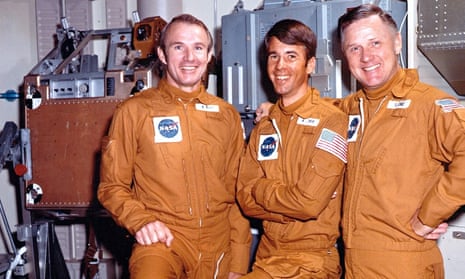The sight of the entire Earth, visible to the naked eye, has had a profound effect on those who have seen it. Astronaut William McCool described it as “beyond imagination”, and many have written how space flight permanently altered how they saw their place in the universe. For mission control, the wonder of space must seem like something of a distraction as they focus on the psychological health of their astronauts working in a high-pressure, high-risk environment, 420km (260 miles) above the Earth’s surface. These day-to-day stresses can be equally as life-changing and Nasa consider behavioural and psychiatric conditions to be one of the most significant risks to the integrity of the mission – not least as there is now significant evidence that space travel has mind-altering effects.
One of the most common experiences are frequent hallucinations that, despite sounding ominous, are probably the least concerning when it comes to in-orbit mental health. In the early Apollo missions, astronauts reported regular flashes or streaks of light that seemed to come out of nowhere. During a 2012 mission on the International Space Station, astronaut Don Pettit described these experiences as “flashes in my eyes, like luminous dancing fairies” that could be overlooked during work but would appear strongly “in the dark confines of my sleep station, with the droopy eyelids of pending sleep”. These flashes attracted significant scientific attention, and a series of experiments determined that they are caused by cosmic rays: free moving subatomic particles from distant destructing stars. On Earth, most particles are absorbed by the atmosphere, but in space they cause nerve cells in the visual system to produce the “dancing fairy” effect.
Perhaps more seriously, hallucinations have been associated with the breakdown of crew coherence and space mission stress. In 1976, crew from the Russian Soyuz-21 mission were brought back to Earth early after they reported an acrid smell aboard the Salyut-5 space station. Concerns about a possible fluid leak meant the replacement crew boarded with breathing equipment, but no odour or technical problems were found. Subsequent reports of “interpersonal issues” and “psychological problems” in the crew led Nasa to conclude the odour was probably a hallucination. Other Russian missions were thought to be have been halted by psychological problems, but the US space programme has not been without difficulties. During the Skylab 4 mission, long hours, exhaustion and disagreements with mission control resulted in the crew switching off their radio and spending a day ignoring Nasa while watching the Earth’s surface pass by.
Now that a voyage to Mars is being considered, scientists have started to study the effects of confinement in simulated missions, the longest of which lasted for 520 days of isolation. Over time, the grind of round-the-clock stress took its toll, and the most affected crew members became a source of dispute and conflict.
Living for months in a tin can, hundreds of miles from home, with few comforts and a stressful job, may bring myriad psychological pressures, but one additional factor might be the functioning of the brain itself. Studies have found that many basic mental abilities, like attention, task switching, bodily co-ordination and problem solving seem to work less well in space. The astronauts’ reduced physical exertion is likely to be a significant factor, as even on Earth heavily restricting activity reduces mental abilities over time. The effect of a virtually gravity-free environment on blood flow may also be important. Our blood supply has evolved to work best when we experience ground-level gravity, meaning space travel could affect how efficiently oxygen is supplied to the brain.
Brain scans are difficult in space, but electrical readings have been taken using a technique called EEG, which has shown that the brain’s resting activity seems to be different while in orbit. It is not an easy thing to study, because you have to get into space to conduct the experiments, so differences could be due to the stress of the mission rather than changes in gravity. But studies done on parabolic flights – where aeroplanes make high-altitude swoops and dives to temporarily simulate weightlessness for the passengers inside – have found similar effects during the weightless periods, suggesting that the brain changes how it works as gravity fades. Astronauts’ drop in mental ability is not serious, but it is measurable, and in combination with stress, could make it more difficult to manage emergencies.
Despite the science, some of the most striking discussions on the psychological effects of space travel occurred before the first person went into orbit. Freudian psychiatrists speculated in a 1959 issue of the American Journal of Psychiatry, two years before Yuri Gagarin’s pioneering voyage, that the separation from “mother Earth” could lead to pathological “separation anxiety” where “the temptation to escape through suicide into oblivion may be accompanied by an urge to destroy the space vehicle and the rest of the crew”. Thankfully, this has never happened, but Nasa reportedly has guidelines for crew members who become dangerously agitated during space flight, which involve a rather pragmatic combination of duct tape, bungee cords and tranquillisers.
But the reality is that space mission psychology involves a massive scientific investment to try to avoid the mental health consequences of what many people experience on Earth: stress, poor working conditions and loneliness. Getting to Mars seems easy in comparison.

Comments (…)
Sign in or create your Guardian account to join the discussion